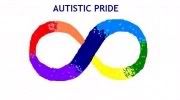 If you missed the piece this morning on Good Morning America, you can find it online here. There were some wonderful moments, both from Ari Ne'eman and Kristina Chew. I was delighted that ABC included the Ransom Notes campaign, and how our community came together and dissolved it. Transcripts from the show are also available on ABCNews.com as well.
If you missed the piece this morning on Good Morning America, you can find it online here. There were some wonderful moments, both from Ari Ne'eman and Kristina Chew. I was delighted that ABC included the Ransom Notes campaign, and how our community came together and dissolved it. Transcripts from the show are also available on ABCNews.com as well.
Ari Ne'eman said this early on in the interview, when speaking about a cure for autism, and why some parents are upset over this:
"I think that one of the key issues to remember is that anti-cure doesn't mean anti-progress," he said.
That is so important. People hear "acceptance" and they assume ignorance and even laziness. Accepting my child, accepting autism, does not mean I sit around and allow her to struggle through her life. What it means is that first and foremost, I see her and treat her as the unique, beautiful individual she is. I respect her and love her. I have learned so much from her, she is a gift, and I really am lucky. I do all I can to help her, to ensure she has the skills she needs to reach the next step (realizing it may take a long time to get there, and there may be hurdles along the way).
"Where does disability come from? It comes, in many respects, from a society that doesn't provide for an education system that meets our needs. From people who often discriminate or bully or even injure us, and from a society that is largely intolerant," Ne'eman said.
Society is very intolerant, we see that time and time again. I have always thought of my home as refuge from the world--and now for my youngest, refuge from a society that can be very cruel. I see it in stranger's eyes when she is having a meltdown in the store (the "can't you control you child?" or "what is wrong with you?" stares and glares). Or the perplexed look on another child or even parent's face if she is struggling to do something (a milestone achieved by children younger than her) or when she is hyper, spinning in circles or making odd vocal noises. You don't realize how judgmental the world is until those moments. I always had such hope for the world, it's easy to become jaded when you are in my shoes. Judge me, that's one thing. But, I never dreamed society would judge a young child. It's disgusting.
Lenny Shaffer, a writer with an autistic son, says of the movement, "You're a handful of noisy people who get a lot of media attention, but you don't represent a broad swath of the autism community."
Ne'eman believes history is on his side.
"I can't think of the civil rights movement throughout history that hasn't been faced with resistance and misunderstanding on the part of its detractors," he said.
I really have to disagree with Mr. Shaffer's perception of the "Neurodiversity" or autism acceptance or autistic pride (or whatever else one may call it) movement. I see our numbers growing each day. I see it most apparent out in the world, with parents of other children in our community. To be honest, most of the parents who I know who feel as I do, they simply go about their day and their life. They aren't seeking media attention or attending rallies. They have no beef with the government or with vaccines or anything else. They focus on helping their child, dealing with the schools, and just with living life with autism. Those who feel it is wrong for us to "accept" autism, they tend to shout louder and love the camera. But, I honestly feel that we are a rather large, and growing, part of the autism community.
"We really try and understand him on his own terms," she said.
That is her advice for parents dealing with a child's autism diagnosis and feeling hopeless.
I couldn't agree more with Kristina. I'm grateful for having (by coincidence and luck I suppose) known a few parents of older autistic children just prior to and around our diagnosis time. They gave very similar advice. There was always a lot of optimism in their message. I have never forgotten their words. My daughter has made tremendous progress, I credit part of that to the fabulous doctors and therapists we have (and knowing she was delayed and needed help before age 1). The other part, and I strongly believe this, is that she has a loving place of acceptance to live in. We do not force her into how we think she should be. We realize she often finds comfort in rocking, flaps when she is excited, and has her own "brand" of play. We understand that eye contact can make her uncomfortable. We do our best to prepare her for social outings, changes in routine, etc. We follow her lead, in many ways. I don't think she would be where she is today, if we focused on changing behaviors or actions that society perceives as odd. She is so connected to us, and each day opens up more to us. We'll be able to help her so much more, because she will know we are trying and that we respect her.
The interview ends with Kristina saying this, a beautiful message that we all should remember:
"Acceptance, to me, is the beginning of hope," Chew said.
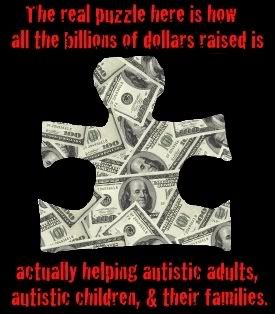





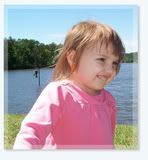

 This Way of Life
This Way of Life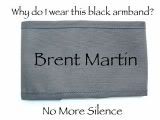

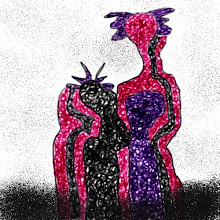

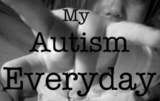





 "Autism is a way of being. It is pervasive; it colors every experience, every sensation, perception, thought, emotion, and encounter, every aspect of existence. It is not possible to separate the autism from the person."
- Jim Sinclair
"Autism is a way of being. It is pervasive; it colors every experience, every sensation, perception, thought, emotion, and encounter, every aspect of existence. It is not possible to separate the autism from the person."
- Jim Sinclair


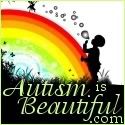

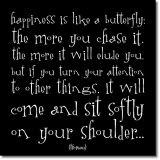


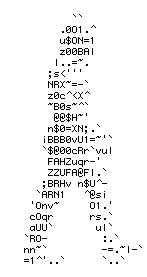
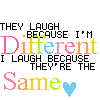
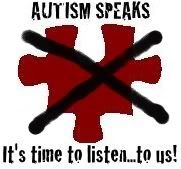




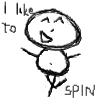

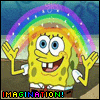

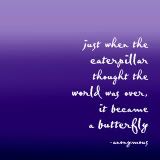



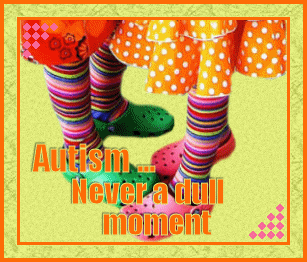

8 comments:
Wow, thanks for the lovely and comprehensive write-up! I do think there are more of us out there than we might think----quietly living, loving and accepting.
Thank you! It was so nice being excited for a story on autism on TV (as opposed to cringing!). You and Ari combined made a great impression, it was just lovely. I've read about your Charlie's swimming and all, but to see him--WOW!! He really is quite the fish (and, as you also write, rather big too).
Now that we've seen Diane Sawyer slowly and carefully pronounce "Neurodiversity," I hope we'll see more stories--especially when the same old perspective is shown over and over in the media. Nice to think that perhaps, they will have the ND side of the story for balance in the future.
While it was overall a very positive story, and I loved Kristina Chew's and Ari Ne'eman's contributions, it is unfortunate that it was said that there are some autistics who are non-communicative and un-emotional. It's too bad that the default thought is that non-verbal = non-communicative, and that blank stare/unresponsiveness = unemotional. Having been in both states in various times in my life, and having had these labels attributed to me as if I wasn't there, that was the only part that made me cringe.
But I give the media the benefit of the doubt (I understand the pressure to make things into sound-bites and concise, simplistic presentations). As society starts to understand more of what autism acceptance is all about, we'll continue to see these shifts toward a better understanding of us and what we stand for (as we've seen recently a dramatic increase in positive autism stories in the media).
geosaru: I agree on all your points. The myths that surround nonverbal individuals is perplexing and aggravating. Our daughter was nonverbal early on, and still has speech issues. It's startling how quick people assume such a person must not be intelligent or capable of feeling, thinking--even being.
I wrote about this a few months ago.
It is refreshing to see the other side in the media, that is for sure. I have no doubt that we'll see more profiles like the ones today. Slowly but surely, we'll get there. We will change society, we must.
Great summary... it was a wonderful interview!
I was deeply ambivalent about the piece: I was heartened that the media is finally recognizing what I think is a very broad swath of the autistic world - those of us who see this as a difference, not a disability. I was glad that great spokespeople like Ari and Kristina were highlighted. But the ignorance and bigotry spouted by the two media representatives here bothered me. They treated Ari and Kristina as outliers, rather than the silent majority that I feel that they represent.
When my son was diagnosed, it changed nothing about who he was or how much I loved him. If I loved him with my whole heart before he was diagnosed as autistic, why would I love him less afterwards? What did my abstract expectations of what my son might be like have to do with the concrete blessing of the person that he is? I think that accepting your child as a real being, separate from you, is the only way to respect him. He's not a role in your life play, he's a feature all his own. That is the attitude at the base of the way that "neurodiversity" parents feel about their children, and it is the healthy way to view all children.
Like you, I whither sometimes under the disapproval and disgust I see in others who look at my son and me. But they are wrong. I worry for him facing a lifetime of intolerance like that. But I also know he's beautiful and strong and he's going to make it. I will carve the world up for him if I have to, and whittle a hollow where he can be just what he is. They would do better to fear me!
Wow, there is a lot of helpful data above!
Thanks for your article, really useful information.
Post a Comment